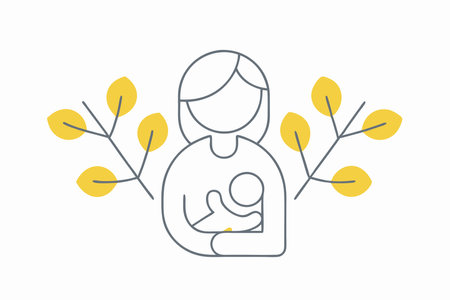Introduction: Family Support in the UK
For many newcomers settling in the United Kingdom, the journey of adaptation extends well beyond finding a new home or employment. Integral to this process is the invaluable support offered by grandparents and extended family members. Their role encompasses not only emotional encouragement and practical assistance but also plays a crucial part in fostering cultural integration and building a sense of belonging within British society. Extended family networks can help bridge generational gaps, transfer traditions, and offer guidance on navigating unfamiliar systems such as healthcare, education, and community services. In addition, these relationships often provide essential social support that mitigates feelings of isolation and enhances overall well-being for both adults and children. Understanding the multifaceted contributions of grandparents and extended family is therefore key to effective financial planning and successful integration for new arrivals in the UK.
2. Intergenerational Financial Planning
For new arrivals in the UK, intergenerational financial planning can play a crucial role in establishing long-term stability and security for the whole family. British families often adopt collaborative approaches to manage finances, drawing on the experience, resources, and support of grandparents and extended relatives. This collective method not only helps to share financial responsibilities but also strengthens family bonds.
Common Collaborative Strategies
In British culture, it is common for multiple generations to contribute towards significant expenses such as housing, education, or childcare. Grandparents may provide direct financial gifts or assist with savings accounts for grandchildren. Family meetings to discuss budgeting, shared goals, and potential investments are encouraged to ensure transparency and mutual understanding.
Popular Support Schemes for Families
| Scheme | Description | Who Can Benefit |
|---|---|---|
| Child Benefit | A regular payment from the government to help with the cost of raising children. | Parents and legal guardians |
| Junior ISA | Tax-free savings account for children, which relatives can contribute to. | Children under 18 |
| Help to Buy ISA/Lifetime ISA | Savings schemes designed to support first-time home buyers through government bonuses. | Younger family members saving for a house |
| Pension Contributions | Grandparents can make contributions into grandchildren’s pensions, boosting long-term savings. | Younger generations |
| Universal Credit/Tax Credits | Financial support for families on low incomes or with specific needs. | Low-income families, including new arrivals |
Building a Family Financial Plan: Best Practices
New arrivals are encouraged to hold open discussions about money management and explore joint savings plans or investment opportunities available in the UK. Seeking advice from local financial advisors familiar with British regulations ensures that all family members understand their options and obligations. By fostering a culture of shared responsibility and informed decision-making, extended families can create a resilient financial foundation that benefits every generation.

3. Navigating UK Benefits and Welfare
For new arrivals in the UK, understanding how to access government benefits, tax credits, and social welfare is essential for establishing financial stability—especially when extended family members, such as grandparents, are involved in childcare or household support. The British welfare system offers a variety of schemes designed to assist families and dependants, but eligibility criteria and application processes can be complex for those unfamiliar with local protocols.
Understanding Benefit Entitlement
The UK government provides several benefits aimed at supporting families, including Universal Credit, Child Benefit, and Tax Credits. Eligibility often depends on factors such as residency status, income levels, and family composition. Grandparents or other extended family members who live with or care for children may also qualify for specific allowances or carers’ benefits. It is important to check whether your immigration status allows you to claim public funds, as certain visas restrict access to these services.
Extended Family Eligibility
Extended family members can sometimes receive benefits if they are acting as primary caregivers or have legally recognised guardianship. For instance, Grandparents providing regular childcare may be eligible for National Insurance credits towards their State Pension via the Specified Adult Childcare Credit scheme. Additionally, if a grandparent becomes the main carer due to parental absence, they may apply for Child Benefit or Guardian’s Allowance. Each benefit has unique documentation requirements and application forms which must be completed accurately to avoid delays.
Seeking Professional Guidance
Navigating the UK welfare landscape can be challenging without prior experience. Families are encouraged to consult local Citizens Advice Bureaux or seek support from community organisations specialising in migrant welfare. These resources can help clarify entitlements and guide you through paperwork, ensuring that both immediate and extended family members receive the financial assistance they are eligible for.
4. Cultural Considerations and Practicalities
When new arrivals settle in the UK, bridging cultural expectations with local norms is essential for smooth family integration and effective resource management. Grandparents and extended family members often play pivotal roles in both emotional support and practical guidance, but their expectations may differ significantly from those prevalent in British society. Understanding these differences—and finding ways to harmonise them—can help families adapt more seamlessly.
Navigating Differences in Family Roles
In many cultures, grandparents are expected to provide substantial childcare or even financial support. In the UK, while family involvement is valued, there is a stronger emphasis on independence and formal childcare options. Discussing and clarifying roles early on can prevent misunderstandings and foster mutual respect.
| Aspect | Common Expectation Abroad | Typical UK Norm |
|---|---|---|
| Grandparental Involvement | Daily, hands-on childcare | Occasional support; formal childcare preferred |
| Financial Contributions | Significant monetary gifts or ongoing support | Encouraged independence; contributions usually situational |
| Living Arrangements | Multi-generational households common | Nuclear family homes more typical |
Managing Expectations and Communication
Open discussions about financial planning and caregiving responsibilities should include all relevant family members. This ensures that everyone understands what is possible within the context of UK regulations, benefits systems, and social customs. Setting clear boundaries not only respects individual autonomy but also prevents undue strain on relationships.
Practical Tips for Harmonising Traditions with Local Practices:
- Hold regular family meetings: Create a safe space to discuss roles, expectations, and concerns.
- Seek professional advice: Financial advisors familiar with immigrant families can offer tailored guidance.
- Educate on local resources: Familiarise all generations with available community services, child benefits, and healthcare entitlements.
- Acknowledge cultural values: Respect traditions while adapting to local norms—hybrid approaches often work best.
Conclusion: Building Cohesive Family Support Systems
Cultural sensitivity and proactive communication help families blend diverse traditions with British norms. By aligning expectations and leveraging available resources, new arrivals can foster strong intergenerational ties while ensuring practical needs are met effectively during their transition to life in the UK.
5. Legal and Healthcare Aspects
When grandparents and extended family members take an active role in supporting new arrivals to the UK, understanding key legal obligations and healthcare registration procedures is essential. For families settling in Britain, ensuring compliance with immigration laws and securing access to public services such as the NHS is a foundational step in successful integration.
Legal Responsibilities of Extended Family Members
Extended family who provide accommodation or financial support must be aware of their responsibilities under UK law. This includes confirming visa requirements, reporting any changes in address to the Home Office, and ensuring that sponsored family members adhere to the conditions of their stay. Grandparents acting as legal guardians may also need to formalise arrangements through a Special Guardianship Order or similar legal mechanism, depending on the familys circumstances.
Healthcare Registration: Accessing the NHS
Registering with a local General Practitioner (GP) is a priority for all new arrivals, including children and elderly relatives. Extended family can support this process by providing proof of address and assisting with necessary documentation. Once registered, individuals can access a range of free healthcare services under the NHS. It’s important to note that some visa categories may require payment of the Immigration Health Surcharge to enable full access to NHS care.
Ensuring Ongoing Support
Beyond initial registration, extended family should encourage regular health check-ups and support continuity of care, especially for those with chronic conditions or special needs. Understanding entitlements—such as exemptions from prescription charges or eligibility for certain screening programmes—can make a significant difference to the wellbeing of new arrivals.
By staying informed about legal and healthcare processes, grandparents and extended family provide vital stability and reassurance, helping loved ones navigate the complexities of settling into life in the UK.
6. Building Long-term Security
Creating lasting financial security for new arrivals in the UK is a shared responsibility that often involves not only parents, but also grandparents and extended family members. By actively participating in saving, pension planning, and safeguarding family finances, the wider family network can play a pivotal role in ensuring resilience against unexpected challenges.
Prioritising Savings for Future Needs
For many families settling in the UK, establishing a savings habit early is crucial. Grandparents can support by setting up Junior ISAs or contributing to children’s savings accounts, making use of tax-free allowances. Regular family discussions about budgeting—factoring in everyday expenses, future education costs, and potential emergencies—help to embed a culture of financial mindfulness across generations.
Pension Planning for Every Generation
It’s never too soon to think about retirement. Grandparents who have experience navigating the UK pension system can guide younger family members on enrolling in workplace pension schemes and making additional voluntary contributions (AVCs). For those self-employed or new to the workforce, seeking advice from reputable sources like Citizens Advice or The Pensions Advisory Service ensures informed decisions tailored to individual circumstances.
Safeguarding Against Life’s Uncertainties
Unexpected events—such as illness, redundancy, or bereavement—can impact any family. Extended family members can help by encouraging the uptake of appropriate insurance products: life insurance, income protection, and critical illness cover are particularly relevant in the UK context. Reviewing wills and assigning lasting power of attorney further secures the family’s interests and provides peace of mind.
Cultivating a Supportive Financial Ecosystem
The collective wisdom and pooled resources of grandparents and extended relatives are invaluable assets for new arrivals navigating the UK’s financial landscape. By sharing knowledge, fostering open communication, and planning proactively, families can build a robust foundation that stands strong for generations to come.


